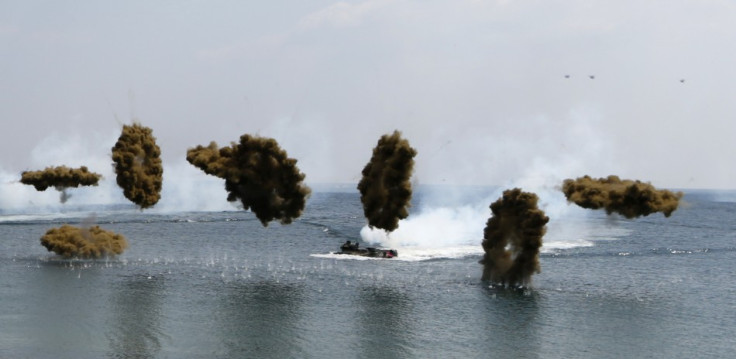South Korea and US End Joint Military Drill amid Tensions

The US and South Korea have ended their two-month-long joint military drill amid heightened tensions in the Korean Peninsula.
Although the two countries have wrapped up the exercise, their forces continue to remain on high alert as North Korea has not scaled down its threatening posture.
North Korea had been sharply critical of the annual military drill codenamed Foal Eagle. During the exercise, the US had flown two B-2 stealth bombers prompting a flurry of threats from North Korea.
The exercise began in March soon after North Korea conducted its controversial nuclear test.
The North Korean mouthpiece, Rodong Sinmun, said the drills were "attack rehearsals" in "driving the situation of the Korean Peninsula to a nuclear war".
"The US and South Korean warmongers should bear in mind that they will not be able to escape a miserable doom if they ignite a nuclear war against the DPRK in the end," added the influential daily.
Ahead of the ending of the drill, a spokesperson of South Korea pointed out that North Korea has not moved its medium-range missile from its launchpad, suggesting that the country could indulge in provocative acts anytime. Several other short-range missiles are also believed to have been deployed in North Korea.
The spokesperson insisted that the forces from both the US and South Korea would be kept on high alert even after the manoeuvres have ended.
More than 10,000 American and South Korean troops took part in the drill, apart from a nuclear-powered submarine.
"We consider the exercise had made a great outcome. Also this training was led by South Korean military, so it was a good chance to examine South Korean army's capability," defence ministry spokesperson Kim Min-seok told reporters.
Both the countries have maintained that the drill was defensive in nature and not intended to provoke North Korea.
© Copyright IBTimes 2025. All rights reserved.






















